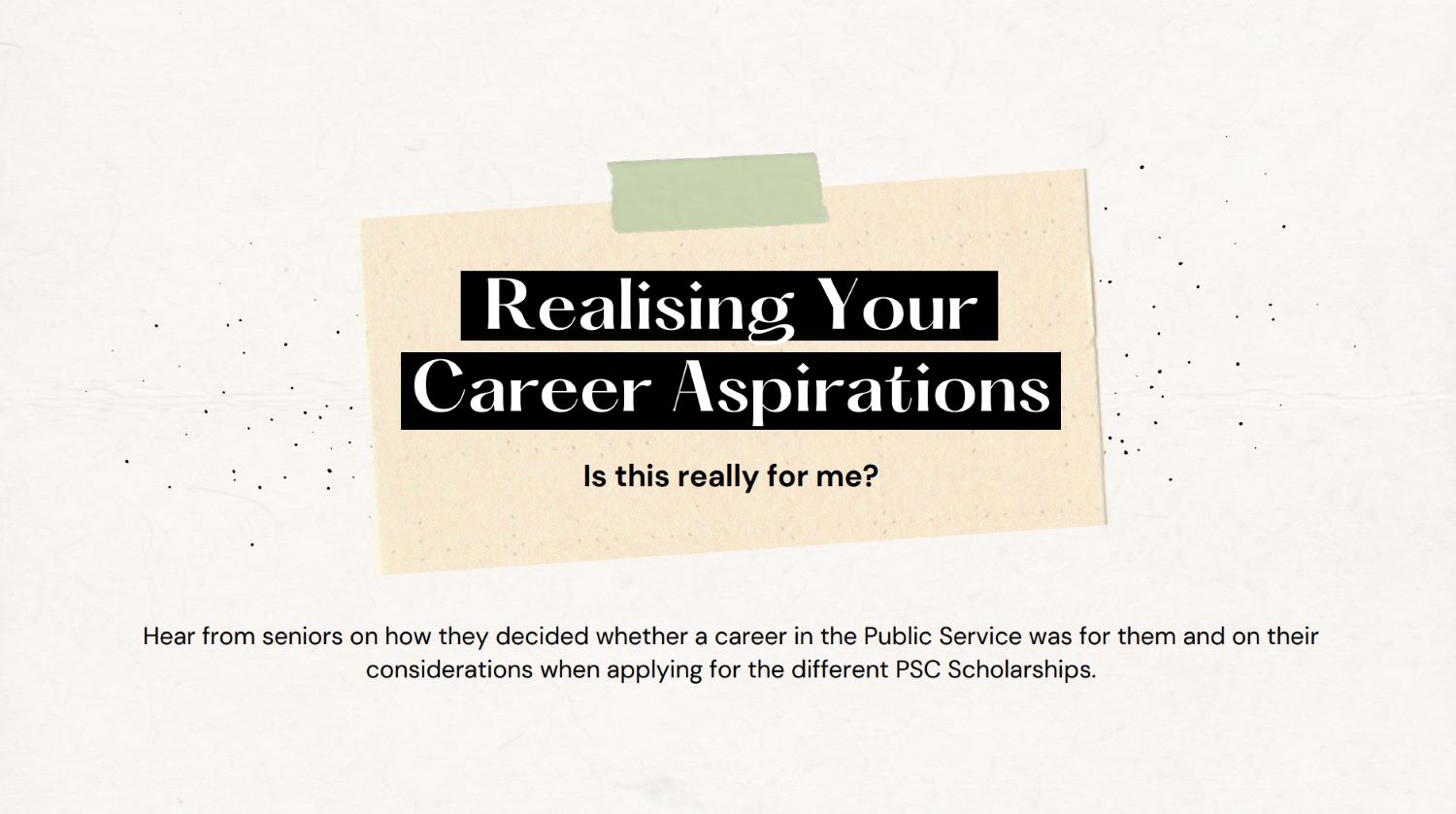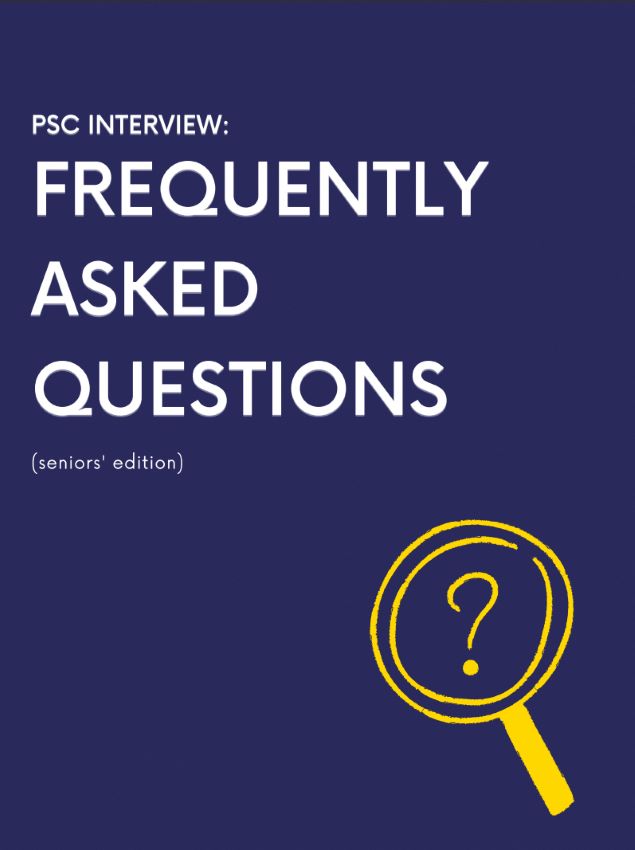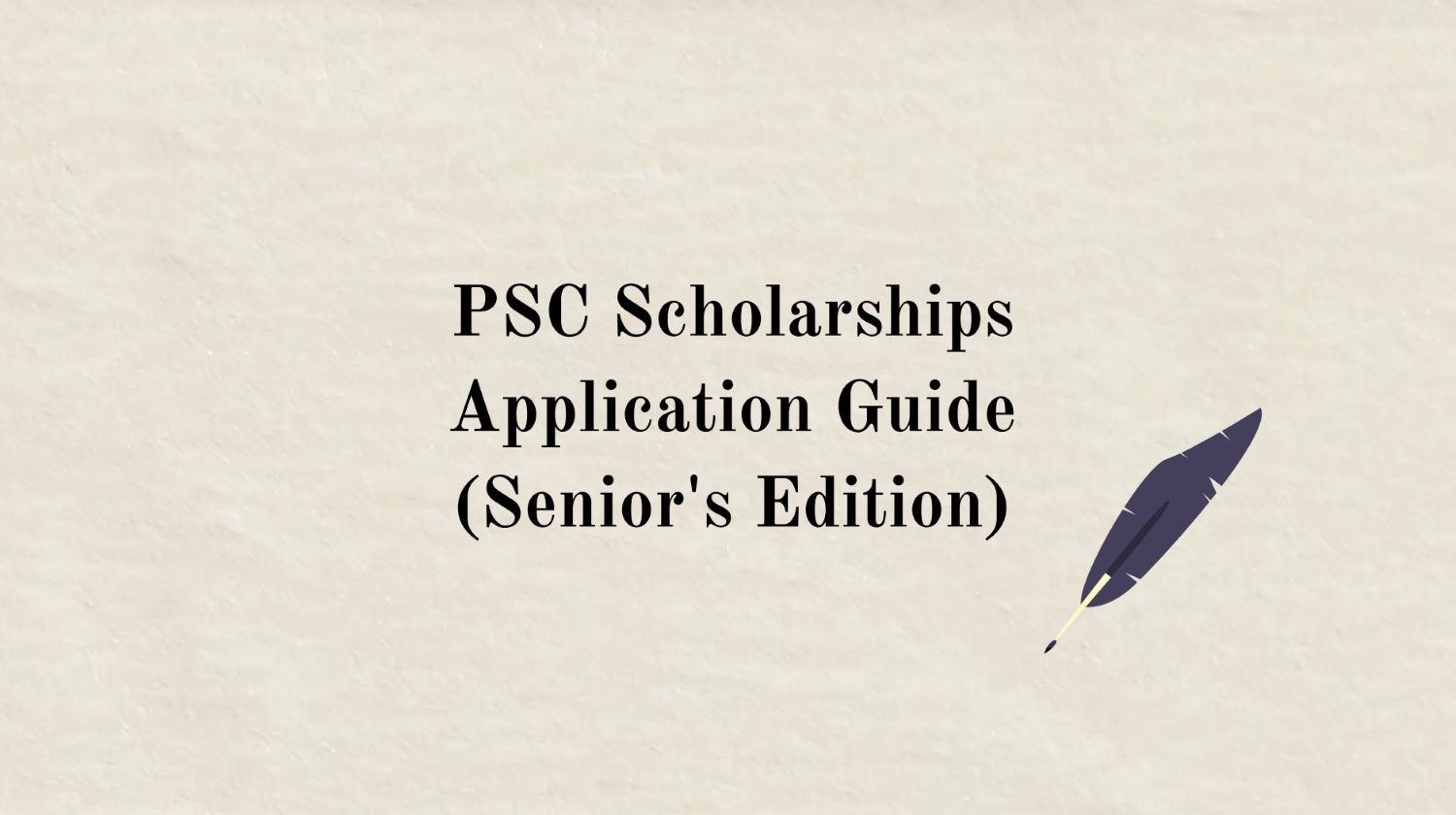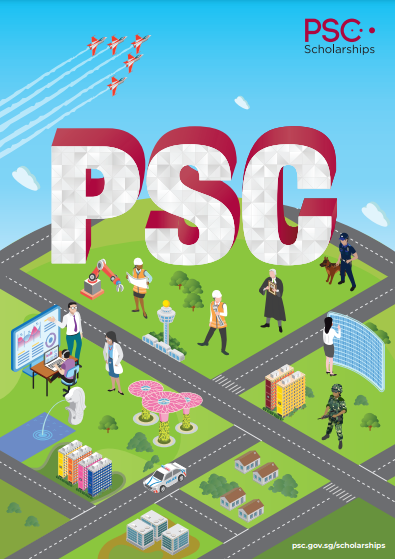-tanay-bharadwaja_picture-1557f82484c994f00b1af9d857ce48c78.webp?sfvrsn=84e6cd30_4)
-tanay-bharadwaja_picture-1557f82484c994f00b1af9d857ce48c78.webp?sfvrsn=84e6cd30_4)
Submitted in November 2021
- Why did you apply for the PSC’s scholarship and ultimately choose to accept it?
Throughout my education journey, I was struggling to find a purpose as to what I should do in my future. First introduced to the concept of the PSC scholarship in junior college, my teachers recommended I apply as I could be a good fit for the Public Service. Reading more about the scholarship and what it would mean for my future, I felt the pieces start to connect. As a second-generation immigrant, I came to the realisation that this was a great way to give back to the country which I’ve called home for all my life. In addition to that, given the provision of the PSC Scholarship (Engineering), this was a great opportunity to fulfil that purpose through my technical skills and knowledge, something that greatly excited me for the future.
Being from a neighbourhood JC, however, I was met with uncertainty by the people around me. The perception of the scholarship was not in my favour, but I decided to press on under the support of my friends and teachers. I decided to press on through the tests but drove myself to put a sense of authenticity throughout my application. This meant no long line of essay drafts and consultations, and expressing myself on the page and tests, barring a couple of sanity checks from close friends and family. Interestingly, I wrote most of my scholarship essay on my phone while travelling on vacation in South Africa and submitted it on the same trip!
Given all these factors, I was flattered to receive a scholarship offer, and was humbled to accept and commit myself to a purpose.
- How has being a PSC scholarship holder impacted your academic journey and/or professional experiences?
Being a PSC Scholarship holder has made a great impact in my academic journey, opening doors to opportunities otherwise unavailable and allowing me to make the most of my learning experiences both in Singapore and abroad. In Singapore, the PSC provided me with various learning opportunities to take on internships in the public sector and the private sector, while also providing the freedom for me to chart my own path as well. The PSC also offered key support for my overseas programmes, such as my exchange to University College London, which proved to be very useful to aid my learning experience without being bothered by any issues.
Being a PSC scholarship holder who studied locally comes with its’ fair share of comments from friends and family and dealing with these comments requires you to be very clear in your aims and purpose in life. This reasoning becomes clearer as you go further down your PSC journey, so not to worry 😊!
- Share with us some stories of your student life.
During my time in university, I took it upon myself to expose myself to as wide a variety of working disciplines as possible. Starting with the public sector, I undertook internships in two public sector agencies, LTA and URA, to understand not just how the public sector worked, but how different agencies work and collaborate with each other. I then went on to pursue the opposite end of the spectrum in the private sector, undertaking a long-term internship with a start-up company to further develop my experiences in the private sector. Experience in both settings allowed me to learn a great deal about independent learning and how to work efficiently. Contrasting the two experiences allowed me to better gain from my university education, by choosing learning experiences that would aid me in my future career. Being a PSC scholarship holder allowed me the flexibility of choosing opportunities that brought the most learning to me without the constraint of building a coherent resume for employers.
My non-academic life in NTU was a whirlwind of activities, but I spent almost all my years in NTU involved in the Students’ Union to get a real sense of how policy was created and implemented over the long term. This was something I would not have been able to experience from my public sector internship given the relatively shorter duration. During my time in the Union I took up portfolios in Ministerial Events and Transport Policy. These portfolios brought me to understand a lot more about soft skills – stakeholder engagement and team dynamics –that I believe will prove to be highly useful in my public sector journey. In addition to the Union, I also took some time to pursue an interest of mine – singing in a choir! I joined the university Choir and had some wonderful opportunities to explore different vocal techniques and a wonderful time singing with my friends. These experiences are some of the ones that I will cherish throughout my life, and they are experiences that you can only obtain in university.
- Are there any misconceptions about working in the Public Service and/or being a PSC scholarship holder that you have come to realise are not true?
Being a PSC Scholarship (Engineering) holder, one of the key criticisms that I hear about tech-based government scholarships would be that the public sector is not the place for tech graduates or is more of a ‘retirement plan’. However, my experiences in the public sector show the opposite, where I met many people who shared the same passion and dedication to do something that was bigger than the sum of their actions. The people that were part of these wonderful teams came from all walks of life, and the diverse range of people working on these solutions was heart-warming to see.
- If there is one word you could use to describe the Public Service, what would it be and why?
Dedicated. The people that I have met in the Public Service through my various internships and interactions are all highly dedicated, and I was heartened by the amount of effort they pour into their jobs. I was moved by their sense of purpose to the work that they do for the betterment of Singapore.
- If you could give one piece of advice to prospective PSC Scholarship applicants and/or recipients, what would it be?
Take the support and opportunities that the PSC gives you to enjoy your university life and expand your view on your field, or your career goals. Specifically for engineering scholars, this would mean taking the time to explore sections of the field that would have relation to policy.
-victoria-song_pictureb4f004423be04d7ea2b2fd16cd452d6b.webp?sfvrsn=72104957_4)
-victoria-song_pictureb4f004423be04d7ea2b2fd16cd452d6b.webp?sfvrsn=72104957_4)
Submitted in March 2022
- Why did you apply for the PSC’s scholarship and ultimately choose to accept it?
Growing up, I had always been keen to work in the public sector as I felt that it would be the best way for me to make an impact to society and contribute to the community. (At one point, I was deliberating between this and signing up to be a fighter pilot!) I was clear that taking up the PSC scholarship meant more than just an opportunity to study overseas, and that it presented a career with the Public Service as well.
- How has being a PSC scholarship holder impacted your academic journey and/or professional experiences?
There were numerous developmental programmes planned for scholarship holders, from the Preparatory Course before we embarked on our university studies, to the PSC Scholarship Holders’ Mid-Course Programme (PSMP) that gave me opportunities to engage with real public issues and challenges that policy makers face. Even when we were overseas, we had chances to take part in in-depth dialogue sessions with visiting Ministers, which gave me insights to understand how policies were formulated and the principles that drove them.
In addition, we were also encouraged to gain a deeper understanding of the country that we studied in, beyond just doing well academically. I did a six-month internship while in China, which helped me understand more acutely how China’s society functioned and how the business cycles changed.
- Share with us some stories of your experiences as a public officer.
I have worked at three places so far: first at the Ministry of Law, where I focused on growing Singapore’s international dispute resolution industry, then at Infrastructure Asia looking for investment opportunities in ASEAN. I am currently at the Smart Nation Digital Government Office (under the Prime Minister’s Office) working on smart urban transformation strategies.
One memorable experience was during the height of the COVID-19 outbreak, where I worked with GovTech’s engineers to develop the TraceTogether Token and SafeEntry Gateway. We had to create the products in an extremely short span of time while tackling the evolving pandemic situation and making sure that everyone in Singapore could be covered. It required a large amount of information to be synthesised and analysed and quick but intense rounds of communication done with different stakeholders, but we delivered under pressure and it was fulfilling for me to contribute my part as we navigated through the crisis.
- Are there any misconceptions about working in the Public Service and/or being a PSC scholarship holder that you have come to realise are not true?
One comment that I sometimes hear is that the Public Service would be slow to make changes as it is a large institution. In reality, officers monitor the environment and people’s needs constantly, and most of the policy changes were initiated within the Public Service, without public pressure, because the policy officers believed that a change would be needed to better reflect society’s needs. However, as any change in policy would lead to an impact felt by many people, a lot of effort and hours would be spent to ensure that the policy catered to the requirements of different groups of people, and to develop mitigating measures to help people with the transition. This could be why people sometimes comment that changes take a long time to happen; many a times things are actually moving just that much of this preparation work is happening behind the scenes and may not as visible to the public even after a policy is eventually announced and implemented.
- If there is one word you could use to describe the Public Service, what would it be and why?
Agile. Working in the Public Service requires you to adapt and react quickly to changing environments, be nimble and be responsive.
- If you could give one piece of advice to prospective PSC scholarship applicants and/or recipients, what would it be?
At the end of the day, the scholarship represents a commitment to work in the Public Service, so if you are applying for the scholarship, take it as a job interview and make good use of the opportunities to assess if this is something you are interested in, as you will be committing many years of hard work in this sector. If you have received the scholarship, make full use of your student life to pursue different skills, step out of your comfort zone and be open to take on new challenges that you may or may not be familiar with. The Public Service will provide a fulfilling journey and you might deal with a wide array of issues from economy-building, social issues, to defence policies and more in your career; it is important that you can adapt quickly to evolving needs and take on whichever challenge that you might be thrown into.
-yik-jiawei_picture.webp?sfvrsn=49a24859_5)
-yik-jiawei_picture.webp?sfvrsn=49a24859_5)
Submitted in March 2022
- Why did you apply for the PSC’s scholarship and ultimately choose to accept it?
I am an accidental scholarship holder. I did not set out to be one. I applied to a double degree programme with an overseas element, because my friends were also applying for it. As I was not from a well-to-do family, scholarships were a potential source of funding for this programme. Ultimately, I received an offer from the PSC, and since it was the only scholarship offer on the table, I accepted it.
I took up the scholarship with no pre-conceived notions of the career pathway that it held for me. It turns out that a career in public service resonates with me deeply, and I have been in service for more than 10 years and counting.
- How has being a PSC scholarship holder impacted your academic journey and/or professional experiences?
The scholarship enabled me to complete my double degree programme in NUS and Supelec, and gave me the opportunity to experience and appreciate a different culture and system of education. If it hadn’t been for the sponsorship it offered, I would have had to drop out of the programme, so in one sense, the impact of the scholarship was very real.
But intellectually, I don’t think the scholarship changed how I engaged with my field of study, or outlook much. I enjoyed reading engineering; It was a field of study where rote learning was not necessary or desirable. The french study of engineering in particular prizes reasoning from first principles, which I have found to be helpful even in my work today.
The developmental programmes that came with the PSC’s offer also gave me the opportunity to make new friends and glean broader perspectives of the Public Service and the collective work we do to benefit Singaporeans.
- Share with us some stories of your experiences as a public officer.
I started out in the Ministry of Manpower, as part of the policy team that looked into improving our CPF system. I subsequently served in the Defence Policy Office in the Ministry of Defence, where I managed our defence relations with partners such as Australia, Thailand, and New Zealand. I later moved to the Land Transport Authority, where I was part of the team that launched the rail operator tender for the Thomson East Coast Line, negotiated the SG-KL High Speed Rail and SG-JB RTS-Link Bilateral Agreements, and implemented Accounts-Based Ticketing in our public transport network. Following this, I had a private sector secondment at SMRT, where I served as the Deputy Chief Maintenance Officer, working on improving and managing rail maintenance. Currently I serve as Director (Strategy & Planning) in the Cyber Security Agency of Singapore.
Many of the projects I’ve had the opportunity to work on have been deeply meaningful. However, what I will always remember is the feeling of triumph when I managed to help an elderly gentleman appeal successfully on a CPF-related matter. I don’t remember the details of the case anymore but feelings I had, knowing that I helped to make a difference to his life, stayed with me. Over the years, I have of course learnt that not every attempt will end in success. But I tell myself that there is a time for everything and a season for every activity. What matters is being in the position to help others, to make a positive difference to their lives, and this is why I choose to stay in the Public Service.
- Are there any misconceptions about working in the Public Service and/or being a PSC scholarship holder that you have come to realise are not true?
There is a misconception that once you are a PSC scholarship holder, your path is firm and you are destined for success. Unfortunately, there is no substitute for hard work and being competent at your job.
- If there is one word you could use to describe the Public Service, what would it be and why?
Opportunity. Being in the Public Service, you have an opportunity, every day, to make Singapore better for your family, friends, and everyone else.
- If you could give one piece of advice to prospective PSC scholarship applicants and/or recipients, what would it be?
It is really hard to decide whether to embark on a career in the Public Service, or any career for that matter, at a young age. My advice is to keep an open mind, and if you think that the values of the Service resonate with you, give it a shot. You may find that you like it, like me.






-cover-page.jpeg?sfvrsn=fbb342eb_8)
-brochure-cover-page.png?sfvrsn=5c4e6067_1)

